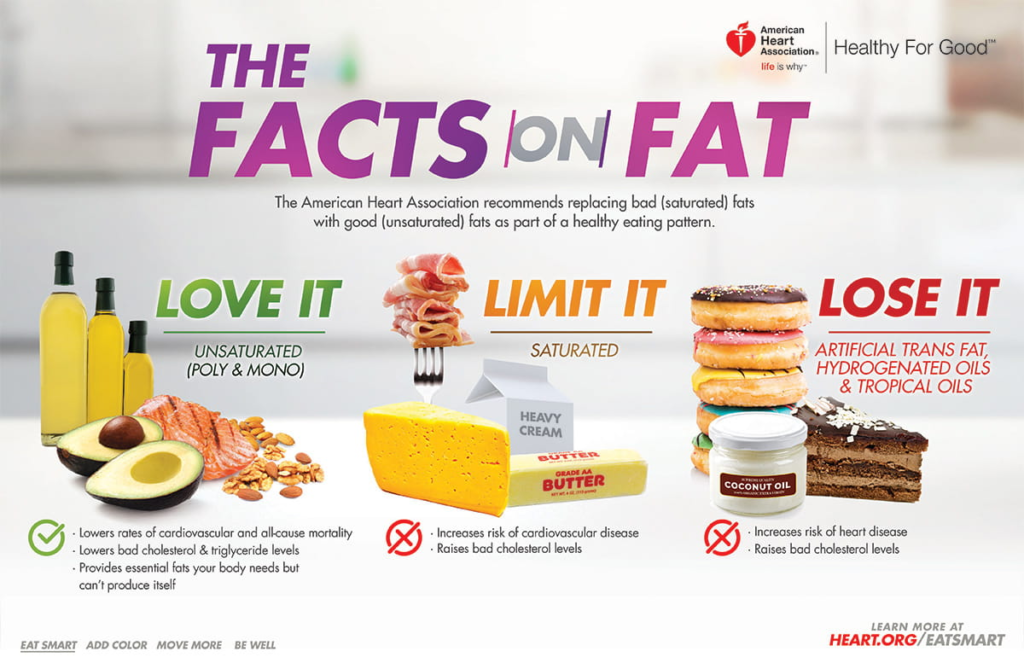Tips to Getting Heart Healthy

Heart disease is the number one leading cause of death for both men and women worldwide.
For the most part, heart disease is caused by poor lifestyle management. Hence, an individual is very much in control of their own heart health by making wiser lifestyle choices.
Nevertheless, there are some non-modifiable risk factors such as family history of high cholesterol and heart issues which cannot be managed by simple medication. However, this non-modifiable aspect only affects a minute group of people.
On this week’s posting, here are 8 tips on how to care for your heart health and to enhance your lifestyle:

1. Eat a balanced diet
- Fruits and vegetables are packed with vitamins, minerals, antioxidants, and fibre. All these are great for heart health.
- It is advised to incorporate five cups of fruits and vegetables into your daily diet.

2. Include good fats in daily diet
- Consumption of animal fat such as chicken skin should be reduced as it is linked to increased cholesterol and heart disease risk.
- However, good fats such as olive oil, avocado, wild salmon, and nuts should be consumed moderately as it can help to reduce the risk of heart disease.

3. Avoid added sugar
- Added sugar refers to sugars added to food to enhance taste (e.g. sweet treats, pastries).
- High sugar intake is related to a higher risk of death from heart disease, even if the individual is not overweight.

4. Weight-watching
- Obesity especially abdominal obesity can lead to heart issues.
- Always weigh yourself every week and if you gain weight, time to lose it by exercise and healthy eating.

5. Stop smoking
- The chemicals in cigarettes can cause blood vessels to become clogged and heart to become weaker.
- Vapes are not suitable alternative’s to cigarettes as they are high in chemicals.

6. Limit alcohol consumption
- Excessive alcohol intake can weaken heart muscle and lead to irregular heart rhythms (arrhythmia).

7. Get physically active
- Moderate to vigorous levels of physical activity strengthens the heart muscle. This improves the heart’s ability to pump oxygen to the lungs and subsequently throughout the body.
- Examples of moderate physical activity (e.g., brisk walking, dancing, and gardening) and vigorous physical activity (e.g., jogging, running, fast cycling, fast swimming, and walking briskly up a hill).

8. Manage stress levels
- Stress releases cortisol which increases blood cholesterol, triglycerides, blood sugar, and blood pressure.
- To manage stress levels better, practice journaling, breathing exercises and meditation. If you feel simple tools like this fail to manage your stress levels, seek the help of a therapist.
References
1. Cardiovascular Health Study (CHS). National Heart, Lung and Blood Institute.
2. Preventing Heart Disease: The Nutrition Source. Harvard T.H. Chan







